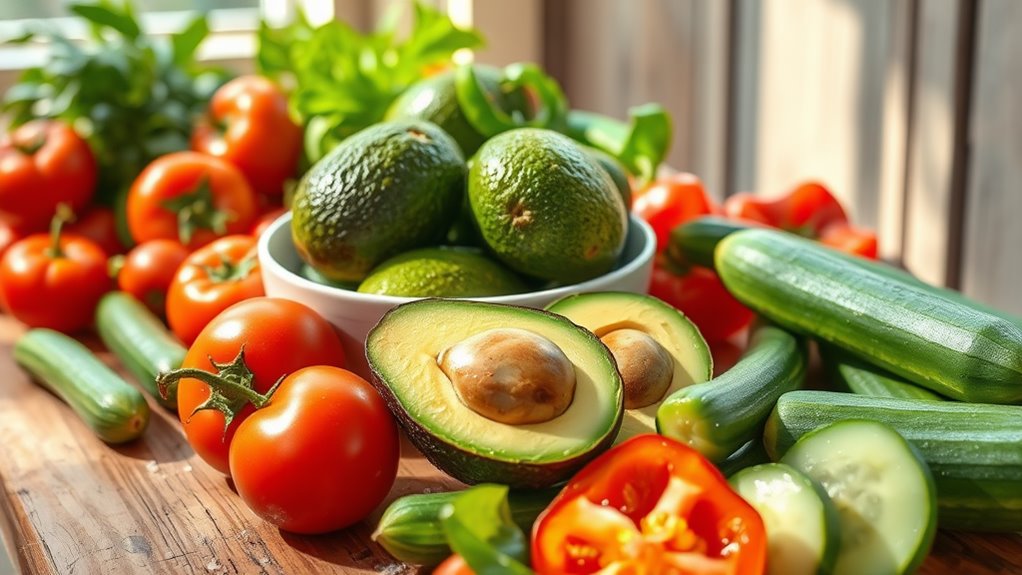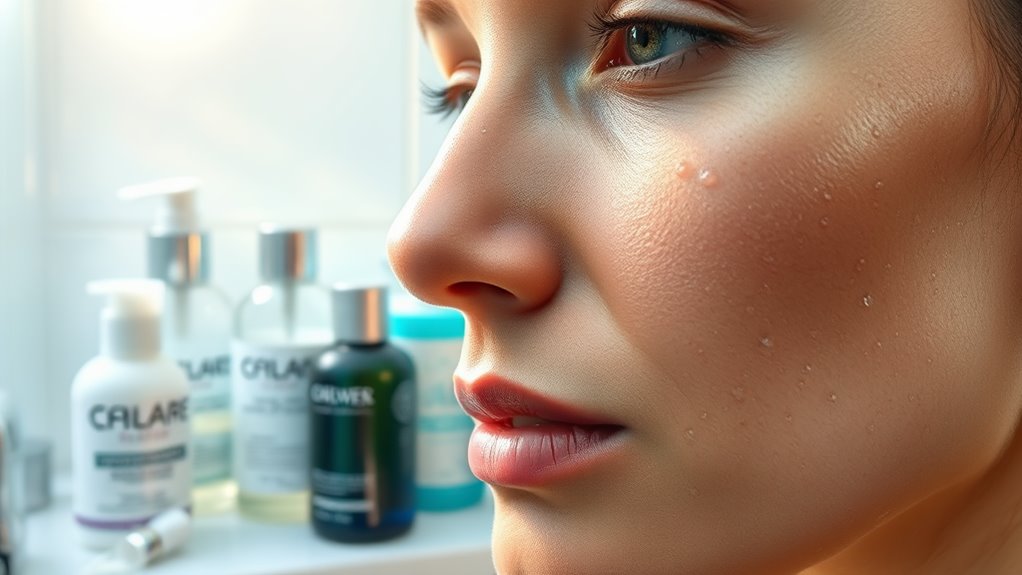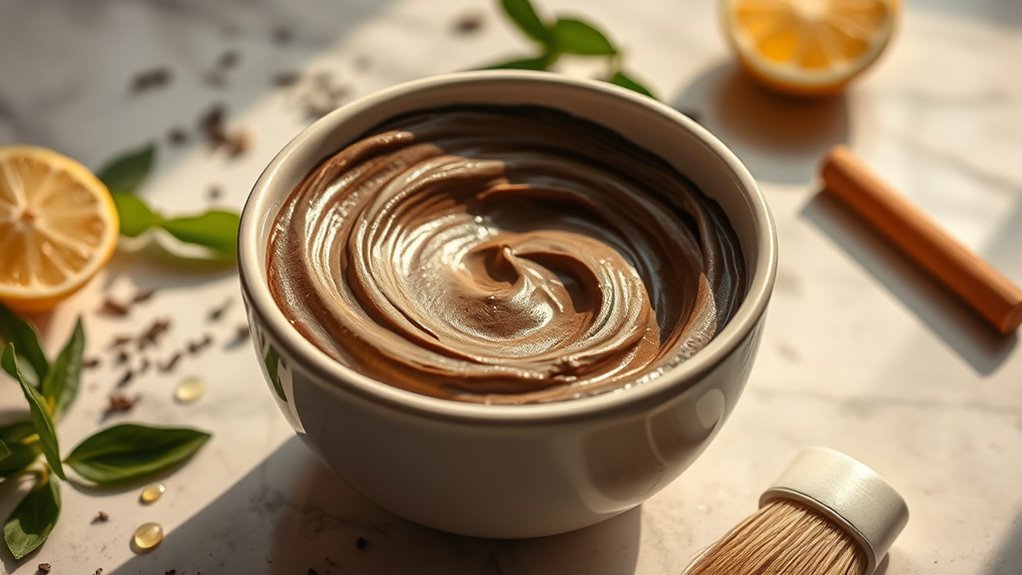What I Eat to Keep My Skin Less Oily (And It Works!)
If you struggle with oily skin, you know how frustrating it can be to find effective solutions. One key factor in managing oiliness lies in your diet. By focusing on whole foods and specific nutrients, you can make a significant difference in your skin’s appearance. Curious about the foods that can help you achieve that balance? Let’s explore the dietary choices that could transform your skin.
Key Takeaways
- I incorporate a variety of fresh fruits and vegetables to provide essential vitamins and antioxidants that help reduce oiliness.
- Lean proteins like chicken and fish are my go-to choices, as they help regulate hormone levels linked to oily skin.
- I include omega-3 fatty acids from walnuts and fatty fish to reduce inflammation and improve skin texture.
- Staying hydrated by drinking plenty of water helps flush out toxins and maintains my skin’s moisture balance.
- I limit sugary drinks and caffeine intake to prevent increased oil production and support overall skin health.
A Diet for Managing Oily Skin
If you’re struggling with oily skin, the food you eat can make a significant difference. Adopting an oily skin diet tailored to reduce excess sebum production can lead to clearer, healthier skin.
Start by incorporating more whole, unprocessed foods into your meals. Fresh fruits and vegetables are packed with antioxidants and vitamins that help balance skin oiliness. Leafy greens, berries, and citrus fruits are particularly beneficial. They not only hydrate your skin but also support its overall health.
Next, consider your protein sources. Opt for lean proteins like chicken, turkey, or fish, which can help regulate hormone levels that contribute to oily skin. Avoid excessive red meat or high-fat dairy, as they can exacerbate oiliness.
Instead, try adding plant-based proteins such as lentils, chickpeas, and quinoa to your oily skin diet. These options provide essential nutrients without the added grease.
Don’t overlook the importance of healthy fats. Incorporating omega-3 fatty acids from sources like walnuts, flaxseeds, and fatty fish can help reduce inflammation and improve skin texture. These fats can also keep your skin hydrated without clogging pores. Additionally, foods rich in anti-inflammatory properties can further support your skin health and combat oiliness.
Finally, stay hydrated. Drinking plenty of water flushes out toxins and helps maintain your skin’s moisture balance. Limit sugary drinks and caffeine, as they can lead to increased oil production.





